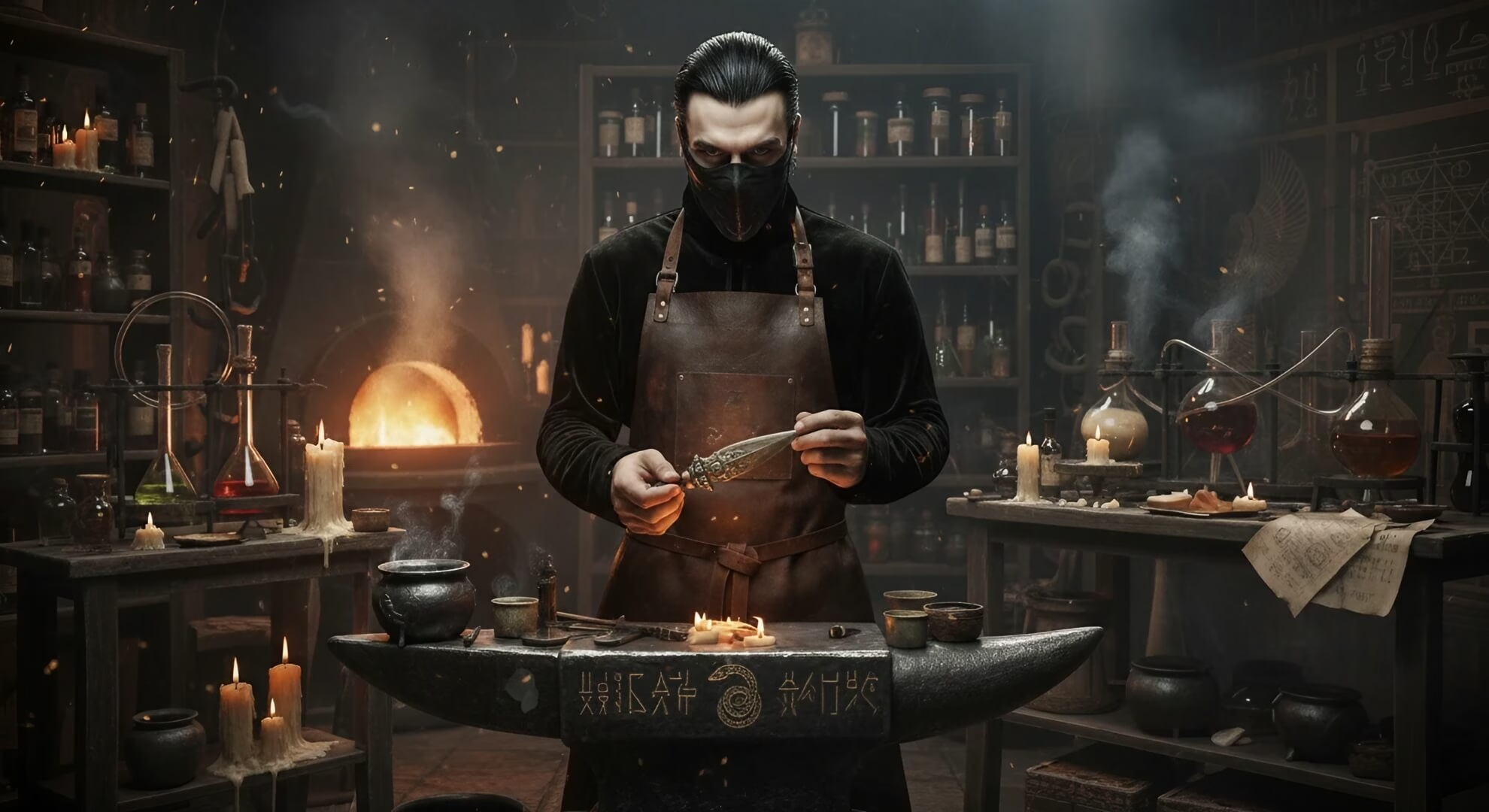The time for preservation is over. The scarred canvas has been endured, the fading texts of the scriptorium have been curated. To catalogue the decay is not enough. The purpose is not to manage the wreckage, but to consume it as fuel. This work requires a new domain: a forge, where the lead of suffering is transmuted into the steel of meaning. I am the blacksmith.
My raw material is the entirety of the self. I feed the furnace with the brittle pages of memory, the flaking pigments of the flesh.
Grief is the coal; defiance is the flint.
The first fire is physical, stoked by the bellows of the lungs, but as the body’s embers cool and its clay hardens, a second, more essential fire is kindled.
This is the ghost-heat of the will, a metaphysical flame that burns hotter as the flesh consumes itself.
The adversary is inertia—the profound, gravitational pull of the unmade. It has no malice, for it has no will; its power is not in action, but in an absolute and universal negation.
It is the cold in the iron waiting to be heated, the silence in the stone waiting to be struck. It is the tendency of all things to return to the great, silent equilibrium of non-existence. The work of the forge, then, is to answer this silence.
The hammer is the intellect, held in the grip of the will, and the anvil is the unyielding surface of reality. Each strike is a question posed to the ore: “Can this be made?” The ringing of the steel is the brutal, honest answer.
It is a dialogue of blows, a conversation written not in words, but in physics—of heat, and force, and the molecular bonds that refuse to yield. Every clang is a singular, defiant sound in a universe of stillness, a momentary proof that the will, not the void, has had the final word.
The instrument of this work—the body—is itself a collaborator with the void. The arm that lifts the hammer atrophies; the hand that grips the tongs trembles. The void believes it is sabotaging the work. It is mistaken.
These are not flaws to be corrected; they are signatures to be incorporated. The tremor is not a sign of weakness, but the honest, chaotic rhythm of a will that refuses to be still. It adds a temper to the steel that a steady hand could never achieve.
There is a final, alchemical cruelty in this work. The forge is not merely a place of creation, but of failed reconstruction.
I was open to the first intrusion, offering this canvas to the surgeon’s steel in the hope of reinforcement. Yet the metal plates and screws became a travesty of their purpose. Intended as an internal armature, they became a cage.
Nerves and tendons, trapped beneath the unyielding metal, now burn with a sleepless fire. Soon, this flesh will be dissected again, the first error corrected by a second violation, adding another layer of scars to a tapestry that was already dense with them.
At times, I see the result not as a man, but as a monster—a failed prototype of flesh and hostile steel, a living crucible where the will must hold together a body at war not only with itself, but with the very instruments of its salvation.
The product of the forge is not an object, but a tool. A blade forged in this manner is never perfect; it is true. It is the sharp edge of clarity needed to parse the present, the unbending spine of resolve required to face the next blow.
The blacksmith does not arm a soldier for an external war; he equips his own soul with the specific implements necessary to navigate its own dark terrain.
The victory, then, is not the finished sword. The victory is the ringing of the hammer. It is the brief, searing light of the forge, pushed back against an endless and encroaching dark. It is the choice not to create something perfect, but to strike the anvil at all.
